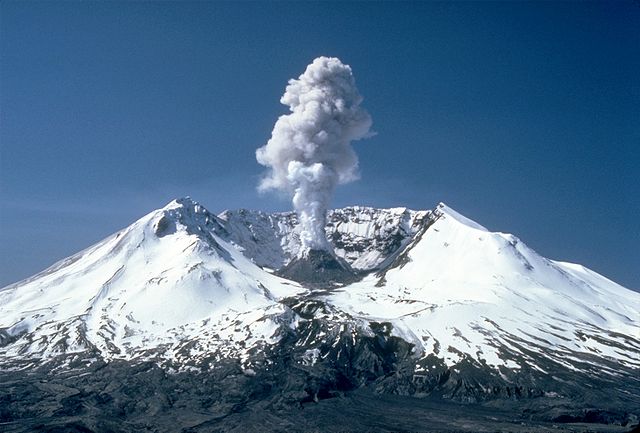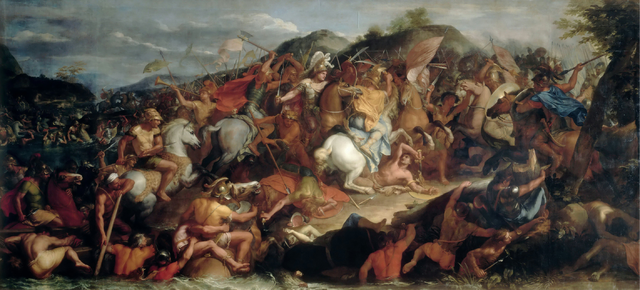There is always much to learn from quotes and their historical significance. Read on for a collection of quotes and general history from May 16th – 22nd.

May 16, 1868
“Sir, the bloody and untilled fields of the ten unreconstructed states, the unsheeted ghosts of the two thousand murdered negroes in Texas, cry, if the dead ever evoke vengeance, for the punishment of Andrew Johnson.”
– Representative William D. Kelley, February 22, 1868
On May 16, 1868, President Andrew Johnson narrowly avoided conviction on one of the 11 articles of impeachment levied against him. The Senate vote of 35-19 fell one vote short of the required two-thirds majority. Ultimately, this result held for the remaining articles allowing Johnson to remain in office. Johnson had become the first U.S. president to be impeached earlier that year when the House charged him for “high crimes and misdemeanors” associated with his removal of Edwin Stanton from the secretary of war position in violation of the Tenure of Office Act. Johnson’s acquittal had a major impact on politics for years to come, diminishing presidential influence while still maintaining the balance of federal legislative-executive power.
May 17, 1792
“It has become cheaper to look for oil on the floor of the New York Stock Exchange than in the ground.”
– T. Boone Pickens
The Buttonwood Agreement was signed by 24 stockbrokers on May 17, 1792, creating the New York Stock Exchange. According to legend, the signing took place under a buttonwood tree where their earliest transactions had occurred. The earliest trades mostly consisted of governmental securities such as War Bonds from the Revolutionary War and bank stocks. Today, the NYSE is by far the world’s largest stock exchange with a market capitalization of $26.2 trillion.
May 18, 1980
“Vancouver! Vancouver! This is it!”
– Volcanologist David A. Johnston’s final radio call before his death on Mount St. Helens
Mount St. Helens erupted on May 18, 1980. As the deadliest and most costly volcanic event in U.S. history, 57 people were killed and property damage was estimated at over $1 billion. The associated landslide was also the largest in recorded history with the entire north face sliding away. Following the eruption, a 1-mile-wide crater was left at the summit reducing the elevation from 9,677 ft (2,950 m) to 8,363 ft (2,549 m). Although still an active volcano, Mount St. Helens remains a popular hiking and climbing destination to this day.


May 19, 1536
“And thus I take my leave of the world and of you all, and I heartily desire you all to pray for me.”
– Anne Boleyn
Anne Boleyn, a central figure in the English Reformation as King Henry VIII’s second wife, was beheaded on May 19, 1536. In order to marry Anne, Henry took control of the Church of England and began breaking off from the Catholic Church to annul his first marriage to Catherine of Aragon. Although Anne gave birth to the future Queen Elizabeth I, she failed to produce a son. At the time of her execution for high treason on charges of adultery, incest, and plotting to kill the king, Henry was already courting Jane Seymour, his third wife. Following her execution, Anne became venerated as a martyr and has been called “the most influential and important queen consort England has ever had”.
May 20, 1498
“What brought you hither?” – Local authorities in Calicut, India
– Glenn J. Ames, Vasco da Gama: Renaissance Crusader
“In search of Christians and spices.” –Vasco da Gama
Portuguese explorer Vasco da Gama landed in Calicut, India on May 20, 1498. As the first European to reach India by sea, his discovery of the Cape Route allowed Portugal to maintain a monopoly on spices for several decades. The ocean route around the southern tip of Africa was the longest voyage ever made at the time but avoided the highly disputed Mediterranean and crossing the dangerous Arabian Peninsula. Eventually, the other European powers would catch up but da Gama’s first voyage is still considered a major milestone in world history for ushering in a period of global imperialism and establishing a long-lasting Portuguese colonial empire in Asia.
May 21, 1881
“I may be compelled to face danger, but never fear it, and while our soldiers can stand and fight, I can stand and feed and nurse them.”
– Clara Barton
On May 21, 1881, Clara Barton established the American Red Cross in Dansville, New York. She had learned about the Red Cross in Geneva, Switzerland, and worked with them in Europe during the Franco-Prussian War. Determined to bring the organization to America, she became the first president and secured funding from John D. Rockefeller and four others to create a national headquarters in Washington, D.C. Sadly, she was unable to gather a staff she trusted and was forced out as president in 1904. Today, the American Red Cross (ARC) remains a major humanitarian organization providing blood, disaster, and training services across the U.S.

May 22, 334 BC
“I am not afraid of an army of lions led by a sheep; I am afraid of an army of sheep led by a lion.”
– Alexander the Great
Alexander the Great began his conquest of Persia in May 334 BC at the Battle of the Granicus. Although victorious, Alexander almost died in the battle after being attacked from behind but was saved by one of his officers, Cleitus the Black. Alexander went on to win many more battles and create one of the largest empires in history. In fact, he earned the epithet “the Great” from his unparalleled success as a military commander, never losing a battle despite often being outnumbered!


In case you missed last week’s quotes, see History May 9th – 15th.
To never miss a Quill Quotes post, please subscribe via email and/or follow us on social media!
Great quotes! Anne Boleyn’s final words are honestly a mood.
♥ Mae